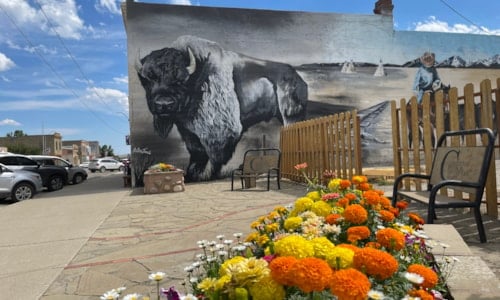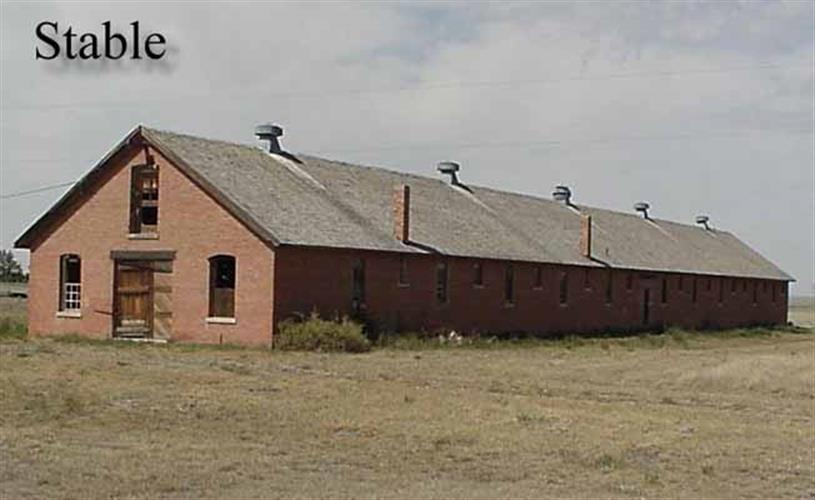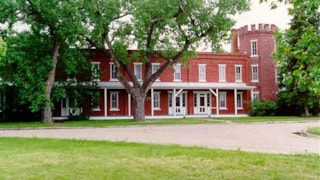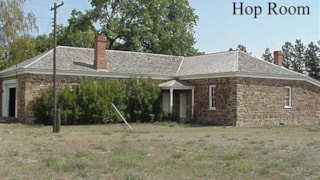Fort Assinniboine Historic Site, Northern Agricultural Research Center
Havre, Montana
Physical Address:
3710 Assinniboine Road, Havre, MT 59501
Mailing Address:
PO Box 308, Havre, MT 59501
Contact Info
About Fort Assinniboine Historic Site, Northern Agricultural Research Center
Step back into Montana’s frontier at Fort Assinniboine. Just six miles southwest of Havre, Montana, along U.S. Highway 87, Fort Assinniboine is a powerful reminder of the American West’s military legacy. Built in 1879, it was once the largest military post in the U.S., and sprawled across 700,000 acres, from the Bears Paw Mountains to the Missouri River.
At its peak, the fort housed over 700 troops in 104 buildings—including the legendary Buffalo Soldiers of the 10th Cavalry. Today, visitors can explore the remaining red-brick buildings, hear stories of frontier life, and connect with a complex chapter in Montana's past.
Guided summer tours take you through original buildings like the officers’ quarters, guardhouse, and stables while revealing tales of figures like General John J. Pershing and the fort’s strategic role following the Battle of Little Bighorn. You'll also learn how the site evolved into the Northern Agricultural Research Center, where Montana State University continues groundbreaking work in dryland farming and rangeland science.
Before you leave, browse the gift shop, snap a photo of the massive red-brick ruins, and don’t forget to explore more of the area. Nearby attractions include the H. Earl Clack Museum, Wahkpa Chu’gn Buffalo Jump, Beaver Creek Park, and the fascinating Havre Beneath the Streets underground tour. Or continue your journey along U.S. Highway 2 along Montana’s Hi-Line, where more hidden gems and historic sites await.
Open seasonally from June through early September, this historic site invites you to step back in time, explore the legacy of the American West, and leave with a deeper appreciation for the land, the people, and the stories that endure.
Fort Assinniboine Historic Site, Northern Agricultural Research Center Activities
Heritage
History
Tour
Fort Assinniboine Historic Site, Northern Agricultural Research Center Amenities
Parking
Fort Assinniboine Historic Site, Northern Agricultural Research Center Reservations
Reservations Accepted
Walk-Ins Welcome
Season
June - September
Hours
Monday - Friday: 9:00am -5:00pm
Saturday - Sunday: 12:00pm and 5:00pm
Group tours available by appointment
About Fort Assinniboine Historic Site, Northern Agricultural Research Center
Step back into Montana’s frontier at Fort Assinniboine. Just six miles southwest of Havre, Montana, along U.S. Highway 87, Fort Assinniboine is a powerful reminder of the American West’s military legacy. Built in 1879, it was once the largest military post in the U.S., and sprawled across 700,000 acres, from the Bears Paw Mountains to the Missouri River.
At its peak, the fort housed over 700 troops in 104 buildings—including the legendary Buffalo Soldiers of the 10th Cavalry. Today, visitors can explore the remaining red-brick buildings, hear stories of frontier life, and connect with a complex chapter in Montana's past.
Guided summer tours take you through original buildings like the officers’ quarters, guardhouse, and stables while revealing tales of figures like General John J. Pershing and the fort’s strategic role following the Battle of Little Bighorn. You'll also learn how the site evolved into the Northern Agricultural Research Center, where Montana State University continues groundbreaking work in dryland farming and rangeland science.
Before you leave, browse the gift shop, snap a photo of the massive red-brick ruins, and don’t forget to explore more of the area. Nearby attractions include the H. Earl Clack Museum, Wahkpa Chu’gn Buffalo Jump, Beaver Creek Park, and the fascinating Havre Beneath the Streets underground tour. Or continue your journey along U.S. Highway 2 along Montana’s Hi-Line, where more hidden gems and historic sites await.
Open seasonally from June through early September, this historic site invites you to step back in time, explore the legacy of the American West, and leave with a deeper appreciation for the land, the people, and the stories that endure.
Fort Assinniboine Historic Site, Northern Agricultural Research Center Activities
Heritage
History
Tour
Fort Assinniboine Historic Site, Northern Agricultural Research Center Amenities
Parking
Fort Assinniboine Historic Site, Northern Agricultural Research Center Reservations
Reservations Accepted
Walk-Ins Welcome
Season
June - September
Hours
Monday - Friday: 9:00am -5:00pm
Saturday - Sunday: 12:00pm and 5:00pm
Group tours available by appointment
About Havre, Montana

Havre, an agricultural city, is situated close to the Canadian border amidst the wide panorama of the open plains. Also a railroad town, it offers modern city conveniences in a remote setting, surrounded by unaltered and uncluttered plains. The economy is diversified with farming, ranching, hospital... ...
Learn More about Havre
























